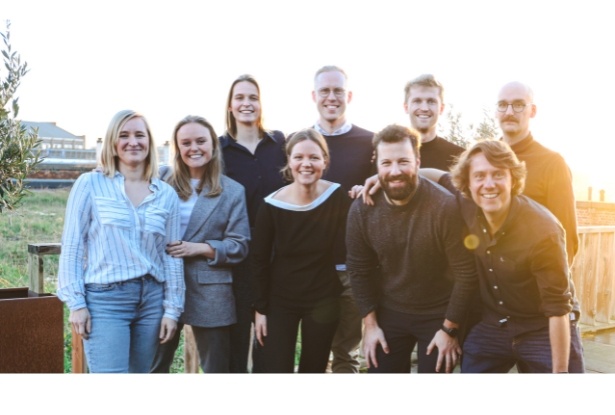- News
- The power of data collaboration in a datafied world
The power of data collaboration in a datafied world
At the FTI Business Night, Stefaan Verhulst, co-founder of the Data Tank and The GovLab (New York University) warned that withholding access to data for reuse could lead to falling behind in an increasingly innovative and digital world.
.jpg?width=615&height=415&name=CEO%20Blog%20banner%20(11).jpg)
Stefaan Verhulst's keynote underscored a critical opportunity that aligns perfectly with FTI’s mission: unlocking data through collaboration.
The question is no longer if we should embrace data collaboration but how quickly we can act. Why is this the moment to double down on data collaboration? Let’s explore.
From digitalization to datafication
In a world that grows more dynamic and complex by the day, challenges such as urban mobility, energy scarcity, or public health demand not just new solutions but new ways of creating them. And at the heart of these solutions lies an untapped asset: data.
In the past, when we started working on digital transformation, we thought that it was really about automation but the real asset that digitalization has brought is data and datafication.
Stefaan Verhulst
The true gift of our digital world is the increased variety of data – both structured and unstructured. Yet, many companies underestimate that AI innovation starts with data, making data collaboration more critical than ever.
Datafication provides opportunities we could barely imagine just a decade ago. Yet, the full potential of data remains locked away, particularly in the realm of non-traditional data like wearables or call-details-records. Until recently, the government and the public sector were the dominant data holders but, today, the private sector holds most of the data, and especially non-traditional data.
Unlocking data for good
The unique power of non-traditional data lies in its potential for reuse. Data collected for one purpose – for example, tracking loyalty in retail or monitoring mobile networks – can be reused to unlock opportunities for innovation and social benefits when applied creatively. Imagine using phone data to guide emergency responses during earthquakes or, as FTI is now championing, analyzing wearable data to better understand and prevent burnout.
The opportunity is clear: by reusing data responsibly, we can tackle some of society’s most pressing challenges. However, this opportunity comes with its own set of obstacles.
-

Stefaan Verhulst – Co-founder of the Data Tank and The GovLab (NYU).
The challenge: bridging supply and demand
Today, an imbalance exists between those who hold data and those who need it for innovative purposes. This asymmetry is made worse by focusing more on preventing data misuse than on encouraging responsible data reuse.
If we fail to act now, this can lead to a data winter which could prematurely end the AI summer, currently driven by data extraction. There isn’t just one way to match data demand and supply. It can range from platforms that share only insights to intermediaries like FTI, which provide a secure and trusted framework for developing data collaborations. In my view, these intermediaries are the real success story of data partnerships.
Stefaan Verhulst
So, how do we create a system where data collaboration is the norm rather than the exception, and where we provide access to data in a way that is responsible, systematic and sustainable?
- Asking the right questions: Before we can unlock the value of data, we must define the questions that truly matter, identifying the societal issues where data can make the biggest impact.
- Empowering Data Stewards: To bridge the gap between supply and demand, organizations need dedicated roles like data stewards. These individuals go beyond traditional data governance, focusing on how data can deliver broader value and creating a data-sharing culture.
- Experimentation: Federated learning, data sandboxes, and generative AI are just a few tools that can accelerate responsible data reuse. By experimenting with these methods, we can better understand how to match data with the right innovative questions.
- Reimagining Consent: Current consent models are too binary and individual-focused, failing to account for the collective impact of data.
- Incentivizing Collaboration: Businesses need a clear business case to share their data, ranging from cost-effective R&D to mutual benefits through reciprocity. Most organizations lack enough data to transition to a real AI environment. The case for collaboration must be stronger than ever in a data-driven world.
A Call to Action
As we face a ‘polycrisis’ – a convergence of societal challenges – data offers a beacon of hope. By unlocking the full potential of data, we can not only address today's problems through data-driven innovation but build resilience for the future.
At Flanders Technology & Innovation, we believe in turning this vision into reality. By fostering trusted data collaborations, we aim to transform data into actionable insights, benefiting both society and the economy.
Want to join the movement? Let’s make the most of the data already at our fingertips via our FTI Alliance. Check it out here.
Other news articles
 19/03/2025
19/03/2025
Data-driven nutritional journeys in the spotlight
With a shared drive to improve well-being through technology, BiometrIQ is joining forces with FTI as part of the Elli use case.
Read more
 03/04/2025
03/04/2025
CEO's Blog - Beyond data egoism: let’s embrace data altruism
The value of data doesn’t lie in keeping it locked away – it grows when it’s shared. Companies that open up, tend to be the ones ...
Read more
 03/04/2025
03/04/2025
The paradox of health data and GDPR: is your data worth dying for?
Our strong commitment to privacy is something to be proud of, but the strict interpretation of GDPR, both in regulation and ...
Read more